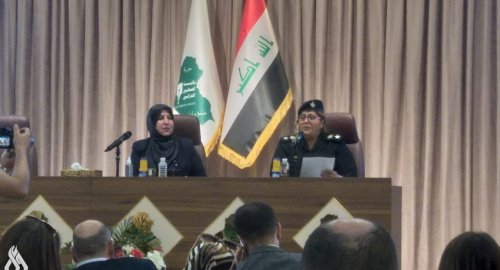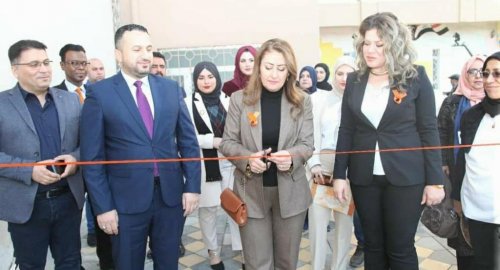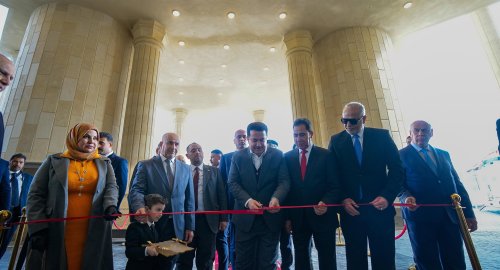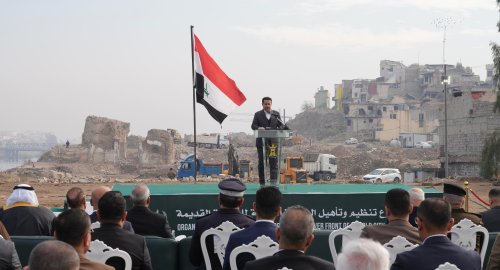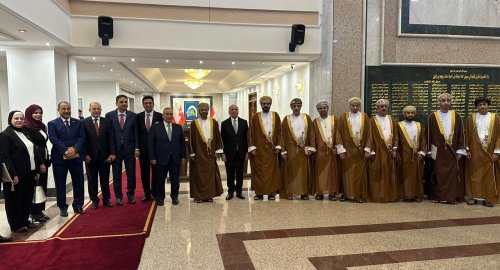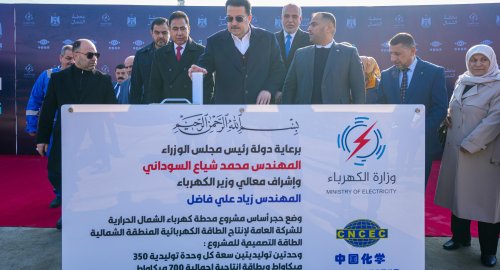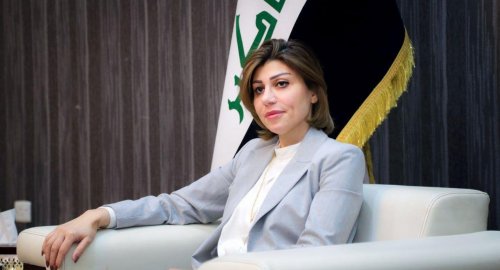
Iraq: Solutions needed to end violence against women

- 10-12-2022, 23:30
INA - BAGHDAD
Iraq Minister of Migration and Displaced, Evan Faiq Gabro, stressed the need to find solutions to end the phenomenon of violence against women.
That came during her participation in a symposium on the occasion of the International Day for the Elimination of Violence against Women and for reviving the 16-day campaign to combat gender-based violence, which was attended by the Iraqi News Agency - INA.
Gabro asserted, "Violence is unacceptable in form and content, whether it is against women or any vulnerable group, and this is mentioned in all religions, as the privacy of the other must be respected, whether a woman, a child or a man as much it is psychological or verbal violence."
She highlighted "the need for instructions and controls to reduce this phenomenon," pointing out that "there is a saying by Pope Francis that in all religions there are small groups that are intolerant, and also violence against women in particular."
"Our days are not rosy, as Christian women, because we are part of this society, and there are many battered Christian women in general," she noted, explaining that "if we identify the very vulnerable group, it may be an immigrant or displaced woman, a refugee, or a woman who suffered violence as a result of war. Consequently, these tragedies will be more difficult for women and their negative impact within communities, whether they are inside or outside the camp."
Gabro referred to the Ministry of Migration as, "Alone! It cannot work on all aspects of rehabilitation. We are specialized in providing relief to the IDPs and their safe return, but we need great institutional support and the support of local organizations too, so we focus on them because they are always present and in direct contact with our communities," noting that "international support is very important as well so that we can create suitable conditions for the return of women to their area of origin, and the simplest thing is security, services and the economic situation through income-generating projects, and the Ministry is working on that."
"There are steps that are not only by the Ministry of Migration, and we adopted that in the previous stage, as many were returned, but many women are still in the camps. The factors that limit their return may be security and political factors," she added.
She included, stressing that "the Ministry alone cannot work to secure its full return as much as joint work to provide this environment, and we guarantee its safe return to its areas of residence."
Prime Minister inaugurates new Nineveh Governorate building
- politics
- 04:30
Al-Sudani launches construction of North Thermal Power Plant
- politics
- 12:03
US Central Command: We killed ISIS terrorist leader Abu Yusuf in Syria
- International
- 24/12/20
Liverpool compete with Real Madrid to sign Olympique Lyonnais star
- Security
- 24/12/19
ISC, ADX discuss Strengthening Economic Ties
- Economy
- 24/12/16
Iraq assumes presidency of Arab Investment Company’s Executive Board
- Economy
- 24/12/17

